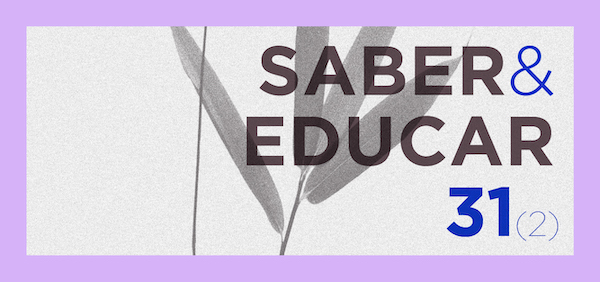Reflections on education as a form of emancipation, construction and liberation of the subject
Uma análise do conceito de autonomia de Paulo Freire com o processo de feminização do magistério
DOI:
https://doi.org/10.25767/se.v30i2.29375Keywords:
Feminization; Teaching; AutonomyAbstract
The book Pedagogia da Autonomia by Paulo Freire brings with it reflections on education as a form of emancipation, construction and liberation of the subject. Thus, taking as a starting point Freyre’s statement about the emancipating and liberating power of education, this work aims to articulate the concept of autonomy in his book Pedagogia da Autonomia with the historical, social and cultural process called feminization of teaching. We will relate the ideas of Paulo Freire (2022) with the social, political and economic changes that he attributed to women, his majority presence in the teaching profession. The research is of the bibliographic type. In an analytical and descriptive perspective, we use Almeida (1998), Louro (2004), Rosa (2011), Yannoulas (2013) and Oliveira (2017) among other authors who discuss the theme of feminization of the teaching profession and especially the work Pedagogia of the Autonomy of the educator, Paulo Freire (2002). We affirm that the feminization of the teaching profession represented a potential for life, power, liberation and autonomy for women, considering that the genesis of education in Brazil was made through impositions of dominant groups for dominated ones, propagating ideals and roles that should be performed by certain groups in the social environment.
Published
How to Cite
Issue
Section
License

This work is licensed under a Creative Commons Attribution-NonCommercial-NoDerivatives 4.0 International License.
- The opinions expressed by the authors are their exclusive responsibility.
- The journal reserves the right to make the original, normative changes, spelling and grammar, in order to maintain the standard language of worship, while respecting the style of the authors.
- Authors retain copyright and grant the journal right of first publication with the work simultaneously licensed under a Creative Commons Attribution License (BY-NC-SA 4.0) that allows others to share the work with an acknowledgement of the work's authorship and initial publication in this journal.
- Authors are able to enter into separate, additional contractual arrangements for the non-exclusive distribution of the journal's published version of the work (e.g., post it to an institutional repository or publish it in a book), with an acknowledgement of its initial publication in this journal.
- Authors are permitted and encouraged to post their work online (e.g., in institutional repositories or on their website) prior to and during the submission process, as it can lead to productive exchanges, as well as earlier and greater citation of published work (See The Effect of Open Access).
PRIVACY STATEMENT
The names and email addresses entered in this journal site will be used exclusively for the stated purposes of this journal and will not be made available for any other purpose or to any other party.





